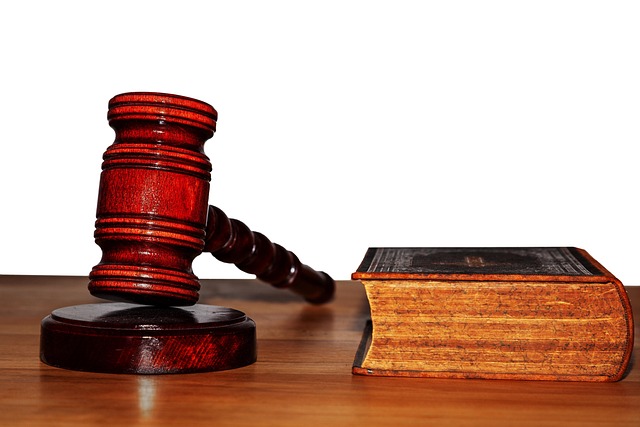Successful strategies in defamation litigation are paramount in criminal cases, focusing on proving false statements leading to reputational damage. Both plaintiffs and defendants must master key elements like evidence collection, communication, context, and legal representation. Defendants employ tactics such as disputing truth, showing reasonable care, and demonstrating genuine belief to challenge actual malice claims. In complex cases, especially white-collar crimes, detailed fact analysis, challenging sources and motives, and public interest arguments are crucial. Meticulous documentation of defamatory statements and their impact through digital evidence can significantly enhance outcomes in criminal law, acting as a deterrent for future defamatory acts.
Delve into the intricate world of criminal law with a focus on defamation cases. This comprehensive guide explores key aspects, from defining and understanding defamation to practical strategies for both plaintiffs and defendants. We uncover common tactics in defamation litigation, providing insights into effective defense mechanisms that have proven successful in real-world scenarios. Through insightful case studies, discover how strategic navigation in these complex legal landscapes can lead to favorable outcomes, empowering you with valuable knowledge on successful strategies in defamation litigation.
- Understanding Defamation Law: Key Definitions and Elements
- Common Strategies in Defamation Cases: A Comprehensive Overview
- Effective Defense Mechanisms Against Defamation Claims
- Case Studies: Successful Defamation Litigation Strategies in Action
Understanding Defamation Law: Key Definitions and Elements

Defamation law is a crucial aspect of criminal law cases, focusing on protecting individuals’ reputations and preventing the spread of false information. At its core, defamation involves making false statements about someone that harm their reputation, lead to contempt or ridicule, or cause legal consequences. To establish a successful claim of defamation, several key elements must be proven. These include the publication of a false statement, which is communicated to a third party, and resulting damages to the plaintiff’s reputation or standing in the community.
Understanding these definitions and elements is vital for both plaintiffs and defendants in defamation litigation. Successful strategies often involve gathering robust evidence throughout all stages of the investigative and enforcement process, ensuring that any statements made can be proven as false and harmful. An unprecedented track record of defending against such claims through effective communication and legal representation can help avoid indictment and protect individuals from unwarranted reputational damage.
Common Strategies in Defamation Cases: A Comprehensive Overview

In defamation cases, understanding and implementing successful strategies is paramount for a winning challenging defense verdict. One common approach involves disputing the truthfulness of the alleged defamatory statements, demonstrating reasonable care in making such statements, or proving that the defendant had a genuine belief in their truth. This strategy aims to challenge the plaintiff’s ability to prove actual malice, a crucial element in many defamation cases, especially those involving public figures.
Additionally, defendants often leverage the context and intent behind the statements. They may argue that the words were taken out of context or that the defendant had no malicious intent, which can significantly weaken the plaintiff’s case. Another effective tactic is to expose any inconsistencies or lack of evidence in the plaintiff’s claims, particularly regarding damages. By focusing on these successful strategies in defamation litigation, defendants can navigate all stages of the investigative and enforcement process more effectively, ultimately increasing their chances of securing favorable outcomes, even in complex cases involving white-collar and economic crimes.
Effective Defense Mechanisms Against Defamation Claims

In the complex landscape of criminal law cases, particularly regarding defamation claims, a robust defense strategy is paramount to achieving extraordinary results. Successful strategies in defamation litigation often involve a meticulous review of the facts and evidence at every stage of the investigative and enforcement process. By proactively addressing the allegations, legal teams can work towards a complete dismissal of all charges, ensuring their client’s reputation remains intact.
One key mechanism is to challenge the veracity of the statements in question. This may include examining the sources, motives, and context behind the alleged defamatory remarks. Additionally, presenting compelling evidence that disproves or mitigates the claims can significantly strengthen the defense. Legal professionals should also explore opportunities for public interest arguments, particularly when addressing matters of public concern, to demonstrate that the publication was not solely motivated by malice but rather served an important purpose in the public sphere.
Case Studies: Successful Defamation Litigation Strategies in Action

In the realm of criminal law cases, successful defamation litigation strategies have emerged as powerful tools to protect individuals’ reputations and achieve justice. Case studies reveal that effective strategies in defamation lawsuits go beyond mere legal arguments; they involve a nuanced understanding of public perception and the media landscape. One key approach involves meticulous documentation of the defamatory statements, their reach, and the resulting harm. This includes gathering digital evidence, such as social media posts and online articles, to demonstrate the scope of the defamation.
Moreover, successful strategies often employ strategic communication tactics tailored to the respective business or industry involved. In cases of white-collar and economic crimes, for instance, demonstrating the financial losses incurred can be instrumental in achieving extraordinary results. By presenting concrete evidence of damage, plaintiffs strengthen their case and increase the likelihood of a favorable outcome, serving as a powerful deterrent against future defamatory acts.
In navigating complex criminal law cases, especially those involving defamation, understanding key legal concepts and employing effective strategies is paramount. This article has provided an in-depth look at defamation law, its definitions, elements, and common case approaches. By examining successful defense mechanisms and real-world case studies, professionals can gain valuable insights into crafting robust defenses against defamation claims. When it comes to successful strategies in defamation litigation, staying informed, proactive, and adaptable is key to achieving positive outcomes in these challenging cases.






